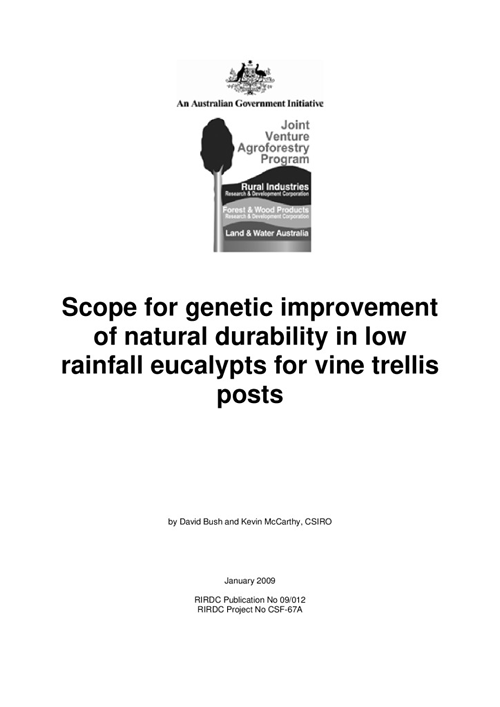This report examines the feasibility of genetically improving eucalypt species suited to Australia’s low rainfall sheep-wheat belt for naturally durable wood production, particularly vine trellis posts. Traits relating to natural durability from trees of young-aged trials (8-12 years) of three eucalypt taxa, Eucalyptus cladocalyx, E. occidentalis and spotted gums (Corymbia spp.), were assessed. The research has shown that E. cladocalyx may be well-suited to production of naturally durable posts, and is also amenable to genetic improvement.
Re-establishment of deep-rooted woody vegetation in Australia’s low rainfall sheep-wheat belt may afford a variety of environmental benefits including sequestration of carbon, remediation of dryland salinity and enhanced biodiversity. However, for the planting to be established at the scale required to make a significant impact, production of commercial products from the plantings may be an important driver. Amongst the most prospective species for this purpose are sugar gum (E. cladocalyx), swamp yate (E. occidentalis) and spotted gums (Corymbia spp.). Vineyard trellis posts might be produced within about 8-12 years from these species and/or be sourced from thinnings of a longer-term sawlog crop.





